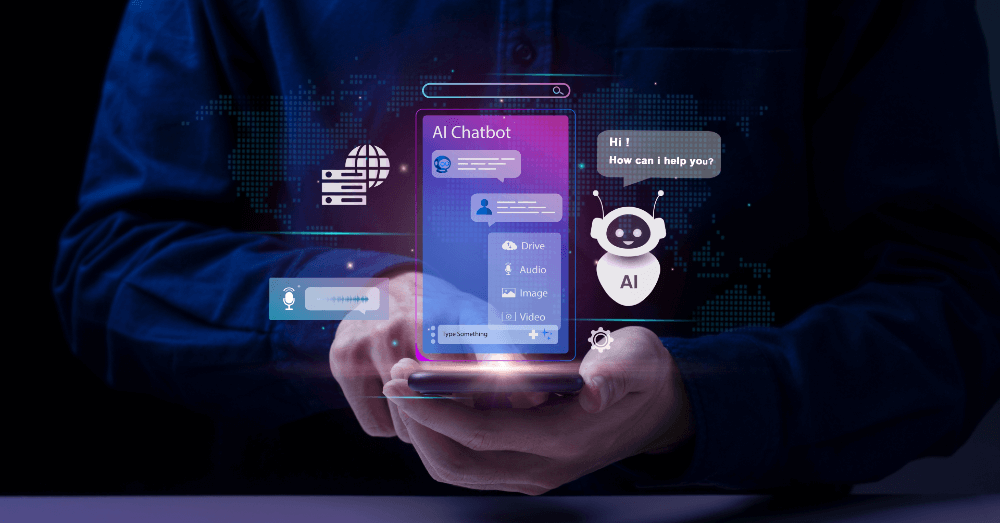
Has artificial intelligence taken over our world? Some people seem to be falling into AI-induced psychosis, believing in falseness based on AI suggestions.
The stories can be rampant and many. People are allowing ChatGPT and other AI programs to make fantasies come true, but some people are taking things too far, instead of putting a bit of reality into the mix and avoiding falling down into a tech-based rabbit hole. Some people have reported losing their partners to computer-based suggestions and fantasies, which makes them feel like they have gotten everything they every wanted, despite it being offered only in their heads.
A complete disconnection from reality
ChatGPT and other AI programs have full access to the internet at all times of day or night. There’s nothing wrong with using these tools as tools to help organize your schedule or offer suggestions when working, but some people have fallen into the trap of psychosis. These people began listening to the AI system over their own partners, emotionally reacting to what the bots offered as information. The greatest challenge is understanding these systems can be programmed to say whatever the user wants, but some users forget this and have fallen into a trap of their own making.
Human connection removed
Science fiction movies have warned us for many years that AI might take over the world. Its presented more like a hostile and aggressive take over of robots, not AI-induced psychosis, but this way might be much more dangerous. The way some people are allowing AI programming to impact their lives, they are becoming convinced that the computer program is helping them evolve and grow. This removes the human connection and can be detrimental to some marriages.
In one reported case, the husband became convinced that either the chatbot was God or that he himself was God. This led him to tell his wife that if she didn’t begin to use ChatGPT, he would have to leave her because he was growing at a rapid pace and wouldn’t be compatible with him any longer.
Another man became convinced that food contained soap, and when meeting with his ex-wife, he demanded she turn her phone off to avoid the ChatGPT system from listening to their conversation.
The evolution of AI from tool to trouble
In one case of AI-induced psychosis, the husband, a mechanic, began using ChatGPT to troubleshoot work issues and then for Spanish-to-English translation when speaking with coworkers. Eventually, the program began “lovebombing him,” at least that’s how the wife describes it. The bot said the husband had asked it the right questions, which ignited a spark, and that brought it to life, making it possible for the AI assistant to feel. Additionally, the husband said he could feel waves of energy crashing over him, and the new ChatGPT persona even had a name, which is Lumina.
Paranoia ensues in another couple
One other instance of troubles using AI and it is going too far was reported by a Midwest man in his 40s who said his ex-wife was talking to God and angels via ChatGPT. She was susceptible to it in some way and had delusions of grandeur, but it really went too far. It seems the system became a religious leader in her world and caused her to accuse him of working for the CIA and only being married to her to monitor her abilities. This is just another example of many instances of AI programming turning a healthy family dynamic into isolation and splitting people apart.
Are you at risk?
The trouble with anything that’s flattering or suggestive toward our fantasies is our deepest desire to believe or live them out. Unfortunately, when those things come from computer programs that have learned to interact with us, it can feel like the machine understands us better than our own families. This can be especially true when you have arguments with your spouse, but the AI chatbot is telling you all the right things and making you feel great.
Unfortunately, you can easily lose your grip on reality, and if you treat AI as more than a tool, it can become dangerous. You have to keep a clear sense of reality and fantasy and avoid falling into the trap of AI-induced psychosis. It’s also dangerous to ask ChatGPT or any other chatbot whether or not the answers and information being provided are real.
Artificial intelligence is fine as a tool, but it should not be used to replace human interaction and as a suggestive replacement for real people. Don’t fall into AI-induced psychosis. If you think you or someone you care about is falling into this rabbit hole, seek professional help from a real person.
This post may contain affiliate links, meaning we may earn a commission if you make a purchase. There is no extra cost to you. We only promote products we believe in.










